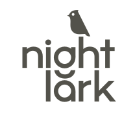Does The Full Moon Affect Sleep?
The effect of the moon on humankind has been in question for many years. Whether it’s been about mood, the body or even, fertility and the world’s birth rate. But is it possible that the moon is affecting our night’s sleep?
If you’ve taken all the necessary steps for getting that perfect seven to eight hours of uninterrupted shut eye, like cutting down on caffeine, exercising regularly, minimising any blue light and listening to calming music, and you still aren’t able to get a full night's sleep, then we could have a new culprit.
In this article, we will be looking at the moon phases, how they could possibly be messing with our sleeping pattern and who it could be affecting the most.
What are the Moon Phases?
The moon changes shape regularly, going through phases of appearance. This is because the moon orbits Earth, causing only a position of what we see to be illuminated. The moon takes 27.3 days to fully orbit the entire earth, however, the moon goes through its entire phase, from new moon to new moon, in 29.5 days.

In short, the phases of the moon are caused by the position of the Sun and Earth, which only allows us to see certain shapes. As the moon produces no visible light of its own, it is lit up by other objects.
All eight phases of the moon have their own name, including:
- New Moon
- Waxing Crescent Moon
- First Quarter Moon
- Waxing Gibbous Moon
- Full Moon
- Waning Gibbous Moon
- Last Quarter Moon
- Waning Crescent Moon
Can the Moon Changing Phase Affect Our Sleeping Pattern?
So, the question is, can the moon phases really affect your sleeping pattern?
A study was conducted by the scientists of the Psychiatric University Hospital (UPK) at the University of Basel in Switzerland using 33 volunteers. They all lived in a laboratory environment for a week whilst they had their sleeping patterns studied. This group had an even number of both male and female, including young adults between age 20 and 31 and older adults between ages 57 to 74.
During this study, they all had to not consume any alcohol or caffeine and ensure they were in perfect health.
Firstly, this study showed that there was a strong correlation between the lunar cycles and overall sleep deprivation. Whilst their volunteers slept, their brains were closely monitored, along with their eye movements and hormone levels. This study showed that on average, their sleep quality was about 20 percent worse during the full moon as compared with the new moon, according to the data crunchers.

How Does the Moon Affect Our Sleeping Pattern?
There are many reasons that the moon could be keeping you from getting the recommended seven to eight hours of shut eye a night. It could be because during the moon's brighter phases, it lets off more light. The more light there is, it can interfere with our circadian rhythm. Our circadian rhythm refers to our physical, mental, and behavioural changes that follow a 24-hour cycle. This is a natural process our bodies follow which primarily responds to light and dark. For example, the darkness means we tend to feel more sleepy and relaxed. This is not just for humans though, animals, plants and even microbes have a rhythm like this.
So, what are your thoughts, do you think the moon affects your sleep? Do you feel that you get a better night’s shut eye when the moon is not that bright?





